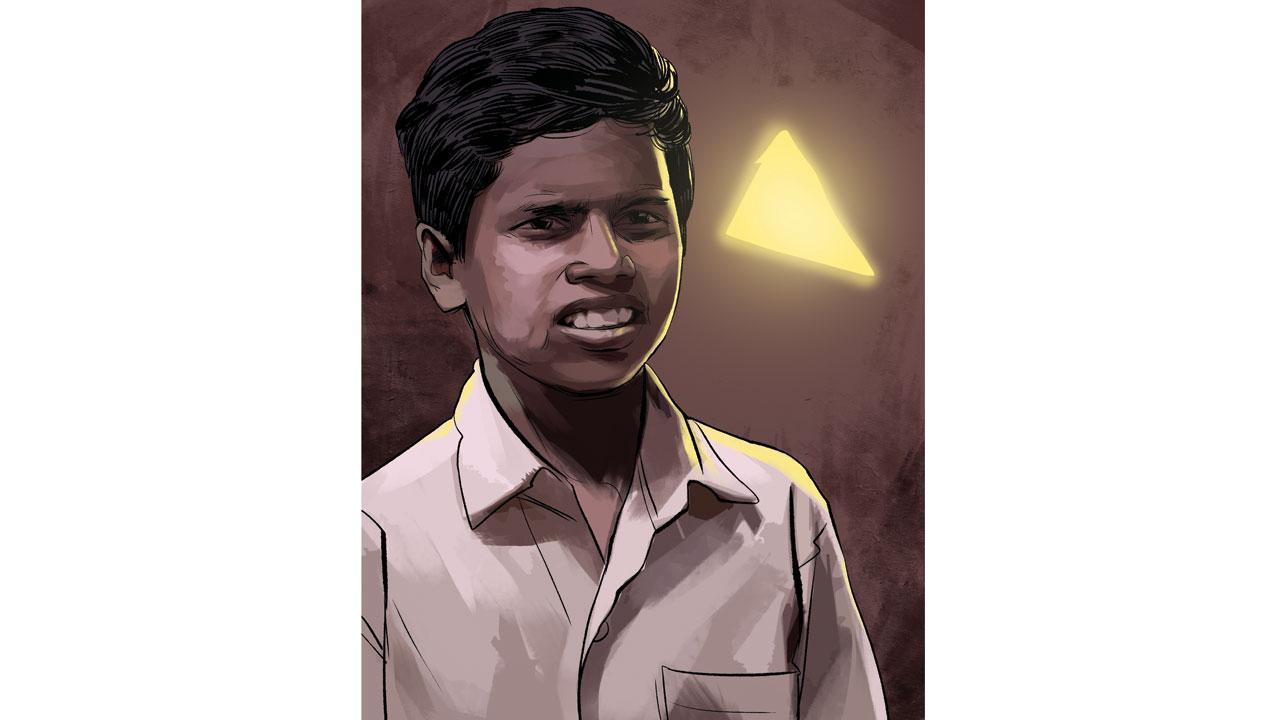It is not often that I have been both hit hard and mesmerised by an Indian debut feature, but Pebbles does just that.

Illustration/Uday Mohite
Did you know that people in Madurai keep a pebble in their cheek during a drought, when no water can be found? When something is popped in the mouth, one automatically salivates, and this keeps the mouth moist. This was one of the revelations of PS Vinothraj’s Koozhangal (Pebbles, Tamil). It is not often that I have been both hit hard and mesmerised by an Indian debut feature, but Pebbles does just that. In addition to making a film of striking artistry and originality, Vinothraj shows us an India that is everywhere, yet we personally hardly know about it, beyond scrolled headlines. The film had its world premiere in the International Film Festival Rotterdam’s Tiger Competition last week.
The two other Indian films selected at Rotterdam are M Manikandan’s Kadaisi Vivasayi (The Last Farmer, Tamil, starring Nallandi and Tamil star Vijay Sethupathi in a marvellous guest role), and Rajeev Ravi’s Thuramukham (The Harbour, Malayalam, starring Nivin Pauly, Indrajith Sukumaran and Nimisha Sajayan), both in the Big Screen Competition section. So, three South Indian films were selected at Rotterdam, and no Bollywood/Hindi films (unfortunately, The Harbour is no longer displayed on Rotterdam’s website at the time of going to press; not a good sign).
Pebbles is about a violent drunk, Ganapathy, and his young son, Velu, 12, who go on an endless, long walk for most of the film’s 74 minutes. When the film opens, Ganapathy has pulled Velu out of school to accompany him to his in-laws’ village by bus, to get his wife Shanthi back. After Ganapathy fights with his in-laws, Velu tears up their bus money, so father and son are forced to walk 13 km home in the sun.
Shanthi, Velu and his sister Lakshmi, have walked this way many times to save money; Velu forces his arrogant father to experience what his wife and children endure. During this long walk—Velu’s satyagraha, really—we learn about the people of Arittapatti, Madurai. We meet a family eating roasted rats, unemployed men playing cards, village women waiting endlessly to fill their water pots from a hole in the ground. There’s the grand, yet harsh landscape, unemployment, acute poverty and domestic violence. We see how much of India struggles to get even a pot of drinking water, unknown to clueless city jacuzziwallahs.
Vinothraj’s direction is absolutely assured; his distilled cinema says a great deal by showing very little, and saying even less. Theatre actor Karuththadaiyan is fantastic as the brutal Ganapathy, with a sexy, jaguar-like stride. Chella Pandi is adorable as his son Velu, vulnerable and tough in turns. The film is a masterly study in economy of screenplay (also by Vinothraj), direction, cinematography and editing.
We never even see Shanthi or learn what made her leave in a huff; it could be any family’s story. Vignesh Kumulai and Parthib’s cinematography is magnificent, with precisely composed frames, be it landscapes or close-ups. There’s a stillness that forces us to reflect. When Ganapathy thrashes Velu, the camera looks away, unable to bear the brutality. Ganesh Siva’s editing is ascetic as a tapasya; and when did you last see an Indian feature of 74 minutes? Yuvan Shankar Raja’s music is discreet and spare. The film is produced by Tamil star Nayanthara and Vignesh Shivan of Rowdy Pictures and Sai Devanand S of Learn and Teach Production.
Pebbles has a raw, homegrown indie force that cannot come out of an international film lab mentored by global experts. We need both kinds of cinema. Above all, the film is about a Madurai state of mind, a distinctive cachet in Tamil cinema. On the surface, it seems about violence, heightened melodrama, sickle brandishing, swearing, folk traditions, caste, and revenge, but its roots are deeper. Think Ameer’s Paruthiveeran, Vetri Maaran’s Aadukalam, Karthik Subbaraj’s Jigarthanda, M Sasikumar’s Subramaniapuram and more. Koozhangal doesn’t need any sickles: the unforgiving sun sears the earth, the men, the trees: all that’s left is the ashes of humanity—and a flicker of the innocence of children. Don’t miss this film.
Meenakshi Shedde is India and South Asia Delegate to the Berlin International Film Festival, National Award-winning critic, curator to festivals worldwide and journalist. Reach her at meenakshi.shedde@mid-day.com
 Subscribe today by clicking the link and stay updated with the latest news!" Click here!
Subscribe today by clicking the link and stay updated with the latest news!" Click here!







